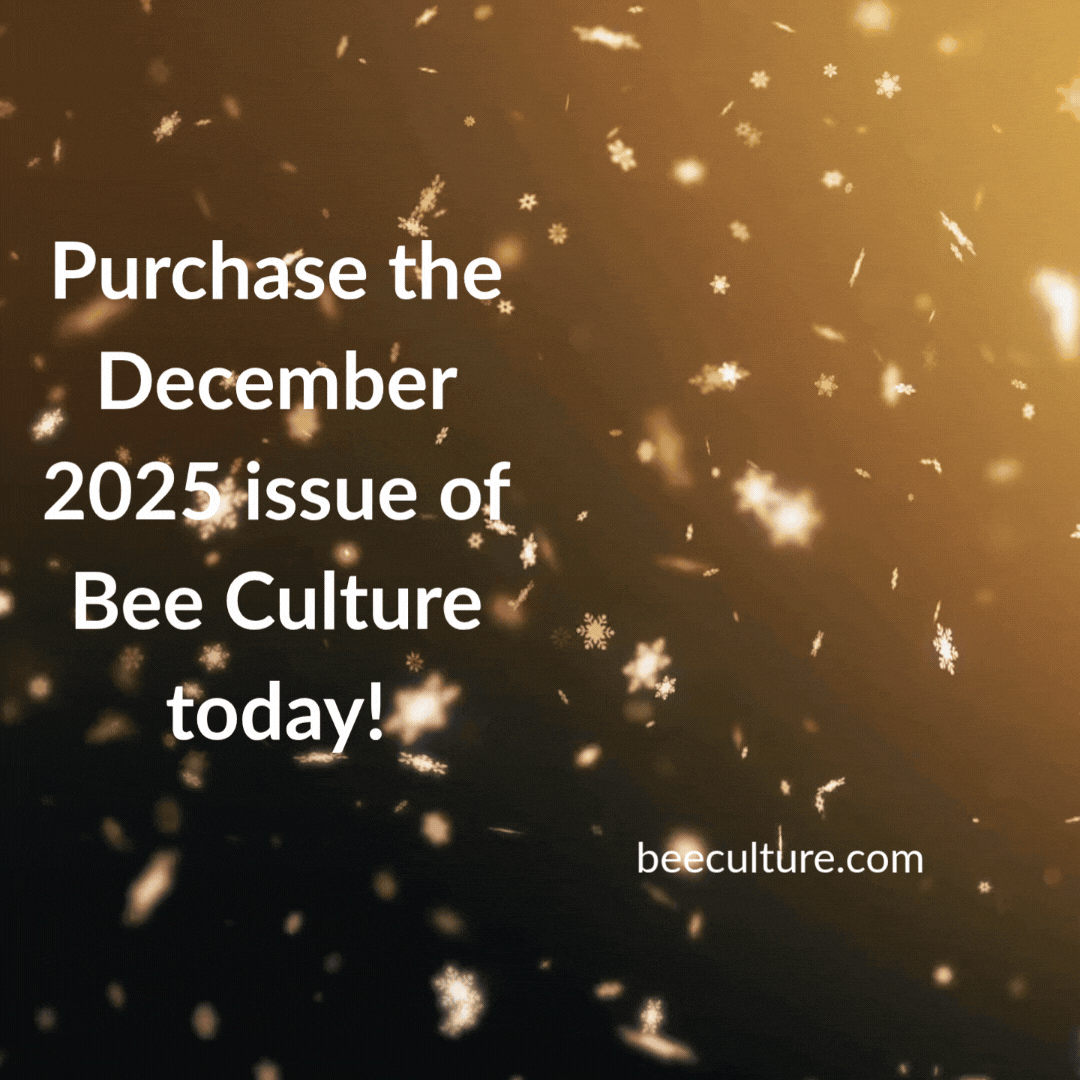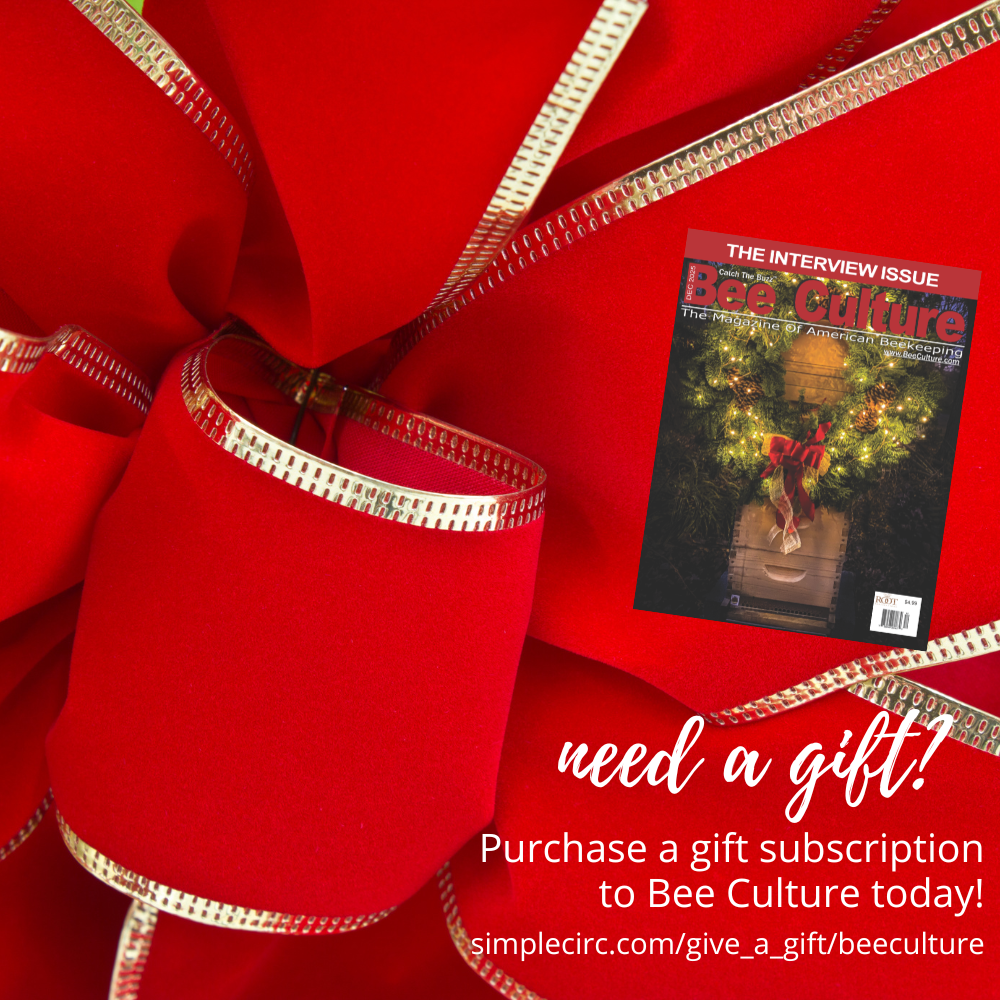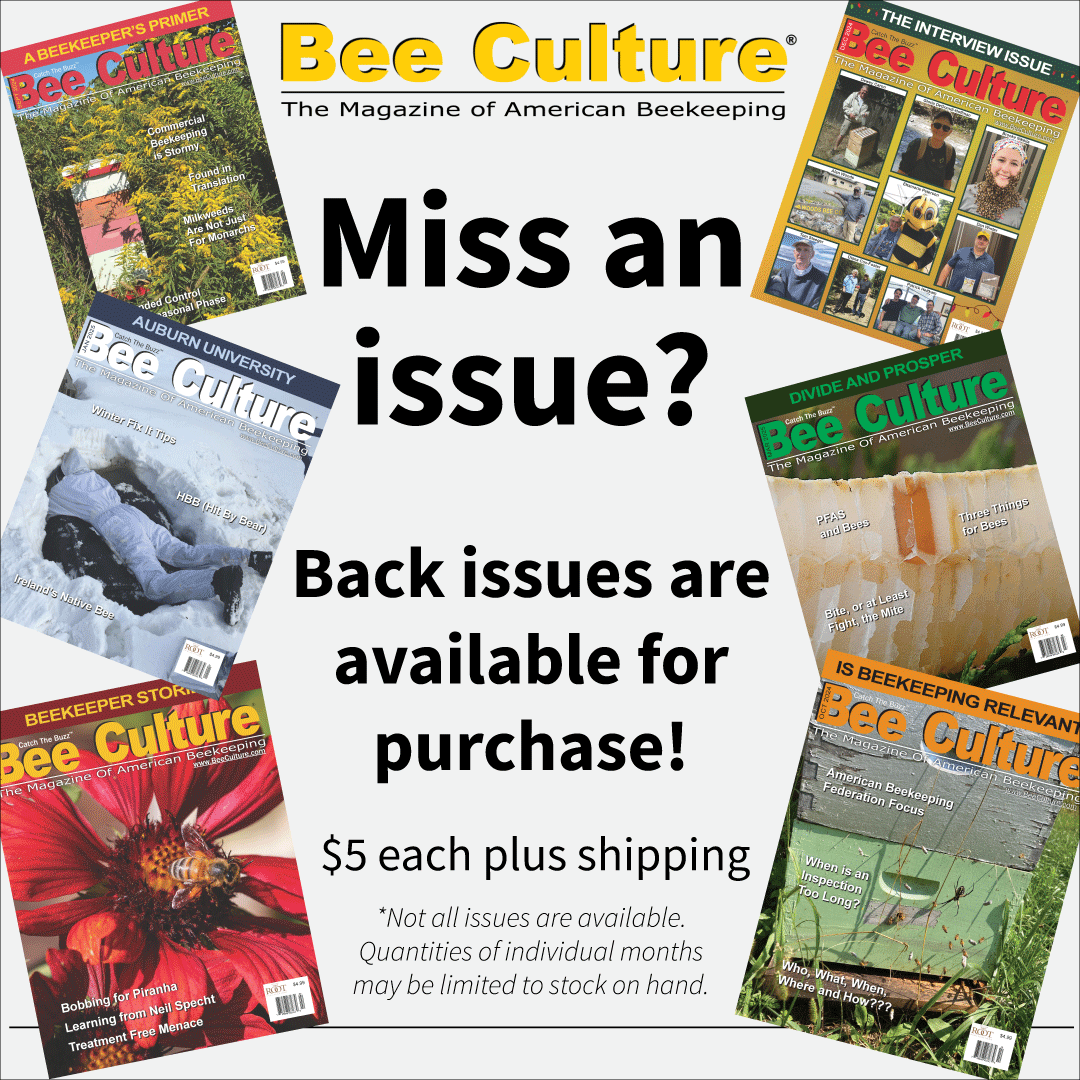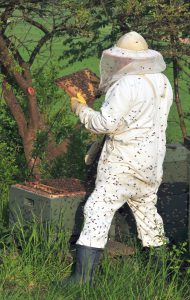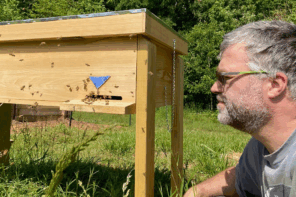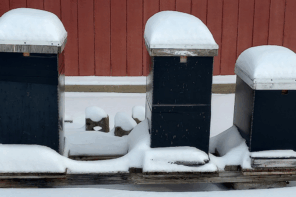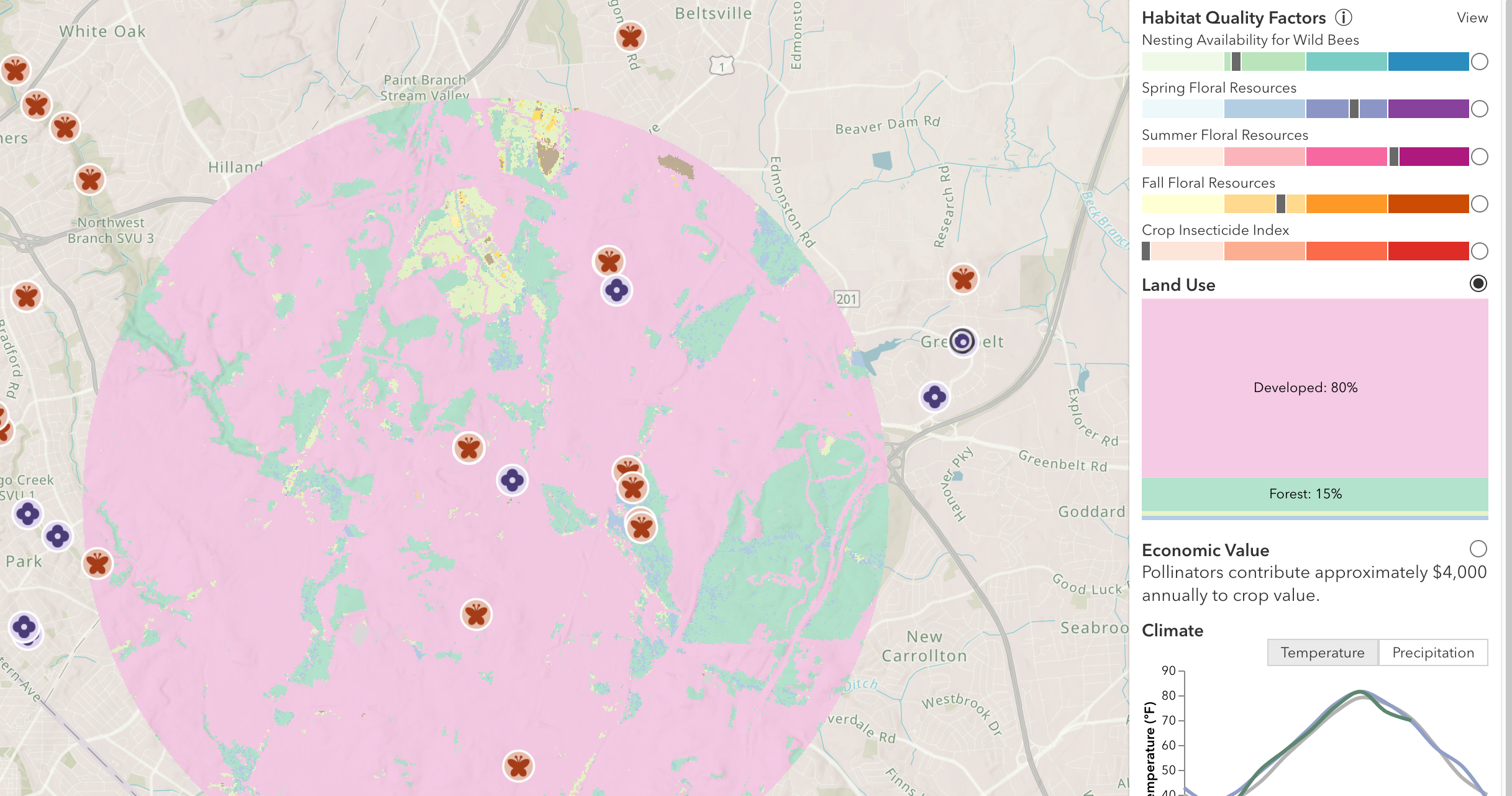David Papke
An interesting social phenomenon occurs when you become a beekeeper. You may be young or old, a man or woman, live in the city or out in the country, maybe a teacher or minister or work in the trades, who knows you might be a bank president – but once you become a beekeeper whoever you are in life becomes secondary in the eyes of everyone else. You are now ‘a beekeeper’ and the general public tends to view a beekeeper as somewhat peculiar, certainly out of the ordinary. When someone meets a beekeeper for the first time they may react with mild wonder or wide-eyed disbelief. Their next impulse is often to start asking questions.
Being an old-timer, I remember the days when the first question was invariably, “Do you ever get stung?” (or worse – bit!). For a beekeeper the answer seems obvious; it’s like asking a carpenter if he ever hits his thumb with a hammer. Still, it took me years to come up with a worthy reply, “Well, not as often as you’d think.” Then I’d go into how gentle honey bees are to work with and if stung what to do. I’d try to describe some of the natural wonders of a honey bee colony without over-stating the role of the beekeeper or making drones the brunt of jokes. It became an opportunity to correct misconceptions, arouse curiosity or occasionally plant a seed.
Nowadays things have changed. The first question most commonly asked is “How are the bees?” And it’s not only asked when meeting a beekeeper for the first time; people I’ve known for years, people who know me primarily as a beekeeper wonder how the bees are doing. They are not only curious, they are concerned. People want to understand what’s going on and who better to ask but the local beekeeper.
Most long-time beekeepers would agree that the shift in the public’s perception, indeed in the question itself, began in 2006 with the response to what became known as colony collapse disorder. CCD became the perfect disaster scenario the mass media thrives on and in no time, wild speculation and fantastic theories drowned out the methodical scientific investigations and ongoing response. It seemed ironic to beekeepers who had been struggling for years with the effects of varroa mites on their colonies that suddenly the honey bee should become the poster child for everything wrong with the environment.
It might be counter-intuitive, but just when things looked like they couldn’t get any worse there came a sudden surge of interest in beekeeping. Beekeeping clubs and associations experienced unprecedented growth, short courses long dormant were overwhelmed and beekeeping publications and manufacturers saw demand climb so dramatically that the beekeeping industry was transformed seemingly overnight in the cities, in the suburbs, in my own backyard – five acres in southern York County, PA. Whereas once I was the only beekeeper around now there are three beekeepers within a mile of my home apiary (and more beyond). Is that a good thing? I don’t know.
“What we need is not more beekeepers but better beekeepers”, wrote Ed Colby in Bee Culture a few years ago. True enough I’d say, but better how so? I tend to think that better is more than merely checking off a list of standard colony management; i.e., feeding, swarm control, harvesting, mite treatments, requeening, feeding, repeat. Better is not just tweaking your regimen. Better is not simply buying the latest piece of equipment, supplement or queen. Better is not only for newbees. Better begins with a recognition that both beekeeping and the environment have fundamentally changed. Better begins when we become more than honey bee keepers and become stewards of all bees, promoting healthy environments where both wild and managed colonies can thrive. A better beekeeper is non-intrusive and manages colonies much as they would live in the wild with minimal inputs, harvesting only surplus honey without the need to feed sugar or artificial supplements. Lastly, a better beekeeper is a mentor to other beekeepers with the understanding that all of us are facing a new day, that we are all in this together not for just our own sake but primarily for the bees.
Transformation needs to be at the heart of beekeeping today. The good old days are gone, the days when colonies thrived in spite of our demands and assumptions. The return to colony health and vitality rests with the bees and those individuals willing to change their mind-set, to explore alternatives to both how and why we keep bees. We simply cannot continue on the path that has led us to where we are today.
As I said, I’m an old-timer. I no longer keep bees as a business and only sell honey “out of the house.” I like the arrangement. People call me up and bring their own jars. I get to know them, they’re regulars. We talk. They understand my supply of honey is limited. They only buy what they need. They know my beekeeping has changed and the bees come first. They’re OK with that. We all need to adapt and respond to some very hard questions.

